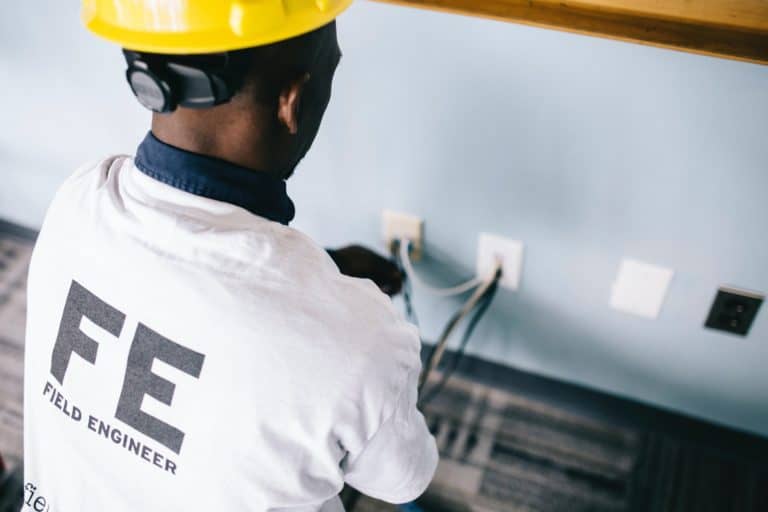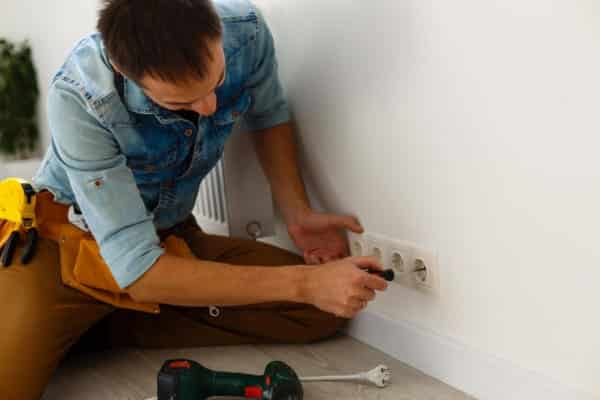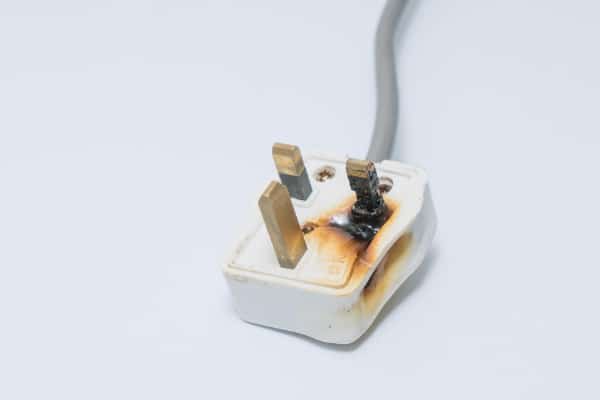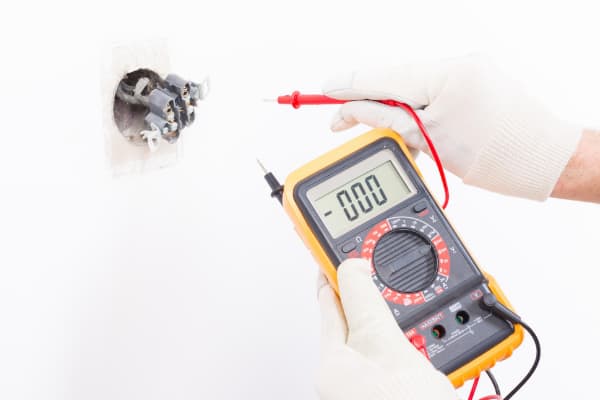Find My Local Expert When is the Best Time to...
Read More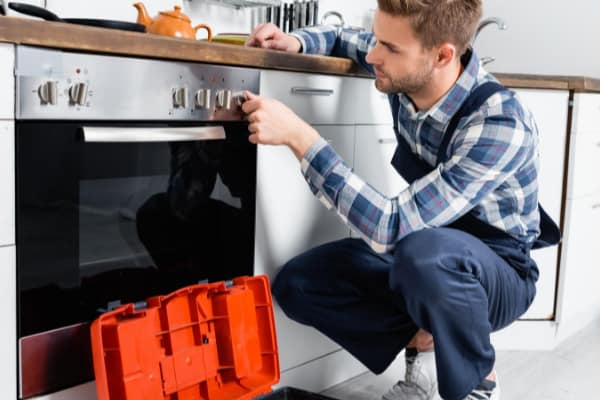
5 Reasons Why Your Appliance is Tripping the Fuse Board
Having a repeatedly tripping fuse board is no one’s idea of a good time, especially when you don’t know why it’s happening. Each breaker in your fuse board is responsible for a specific part of your electrical network, and, while some breakers deal with single high-power appliances (cookers, electrical showers, etc), most of them are responsible for several things at once. For example, it is common for all the lighting in a home to be on the same breaker, meaning one faulty light fixture tripping the breaker will take out all the lighting.
Electrical outlets are similar in that one breaker will be responsible for several electrical outlets. For smaller properties, you may have all the electrical outlets on a single breaker. The problem with this is that a single faulty appliance causing that breaker to trip is also cutting the power to all the other appliances on the same circuit.
It is not advisable to just reset the breaker and hope for the best. Aberrations do happen, but if you reset your breaker, and it immediately trips, or it happens again down the line, you almost certainly have a problem that needs dealing with. Not only will ignoring it not fix the problem, you could be putting yourself at risk from electrical fire, shock, or any number of other problems that can arise from faulty electrical systems.
Why Do Breakers “Trip”?
The purpose of the fuse board and the breakers and RCDs they contain is to protect people and property from injury and damage as a result of faulty electrical systems. When electrical appliances or wiring go wrong, they can start fires, cause minor explosions, and electrocute people.
The point of a breaker or RCD is to detect the sudden changes that occur in the electrical current when a short happens, and cut the power immediately. In theory, a human should be able to touch an exposed electrical wire and the RCD would trip and cut the power so quickly that the human would be safe from electrocution.
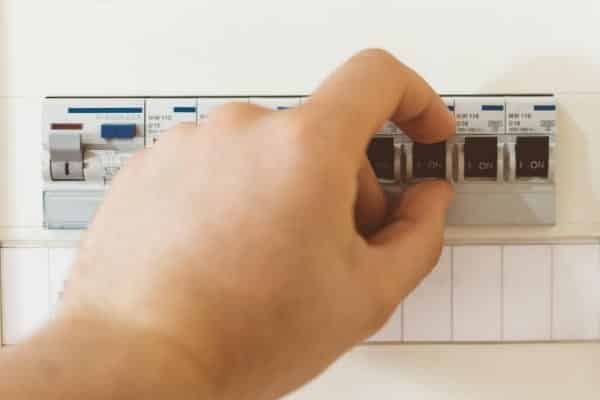
Do not try this! “Should” is the important word there, and, while a great deal of effort goes into making these systems foolproof, it’s best not to tempt fate.
So, when your fuse board trips, it is a sign that there is an electrical problem in your property, potentially one that could have caused you harm, had the fuse board not done its job.
Narrowing Down the Problem
If you have followed what we said above, you might have spotted the inherent problem here; determining the cause of your tripping fuse board. If the dedicated breaker for your electric oven keeps tripping, you can comfortably assume that the problem is with the oven. At the very least, you will be able to narrow it down to that specific part of your electrical network. However, if the breaker tripping is responsible for several electrical outlets in your home, working out which one is the culprit is a little trickier.
Naturally, the easiest way to deal with this problem is to get a professional to come in and run some tests, but it’s perfectly understandable to want to do what you can first. Unfortunately, unless you have the tools and expertise that a qualified electrician would use, you will be limited to a somewhat tedious afternoon of unplugging things and plugging them back in.
The easiest way to narrow things down to the appliance that is causing the problem is to unplug everything and then try plugging them back in one at a time to see which one is causing the breaker to trip. Of course, if one of your appliances is literally smoking or showing signs of electrical damage, that’s a strong sign that it might be that appliance that’s causing the problem.
As we’ll get into below in our 5 reasons, a breaker tripping when you plug a particular appliance in doesn’t guarantee that the appliance is at fault, but more on that below.
5 Reasons Your Appliance is Tripping Your Fuse Board
So, you’ve narrowed the problem down to a particular appliance, but what could be causing it to make your breaker trip like that? The important thing to remember here is that the breaker is responsible for the whole circuit, not just the appliances connected to it. That means that problems with the wiring and, indeed, the fuse board or breaker itself could be causing it to trip.
#1 Damaged Plug or Cable
Probably the most common cause of an appliance causing a breaker to trip is a faulty plug or cable. This can happen because the cable has been damaged somehow, such as might be the case after something heavy has been dropped on it. If you have small pets that are allowed to roam around the house, check that they haven’t been chewing the cable.
The plug could become damaged after being knocked or pulled violently from the wall. A common cause of this kind of damage is from someone tripping over the cable and violently yanking the plug from the socket.
In this case, the circuit is probably being shorted as the live and neutral wires come into contact with each other. The breaker detects the sudden change and trips, cutting the power.
If the damage is in the cable, things may seem a little inconsistent as it could be the case that the cable is fine in a certain position but shorts the circuit when moved. In these cases, you could go for months without a problem and then one day the cable is moved and the breaker trips again.
#2 Placing Excessive Load on Circuit
Electrical wires are rated for a certain amount of electricity, placing a built-in hard-limit on how much of a load you can put on those wires. Unfortunately, exceeding the capacity of electrical wires tends to lead to things like electrical fires, so the breaker will be sized to trip before that capacity is reached.
Now, while it is certainly possible to plug an appliance into an outlet that single-handedly exceeds the capacity of the wiring and causes the breaker to trip, this problem is far more likely to occur as a result of cumulative overloading, which is a fancy way of saying you have plugged too many things into the same circuit.
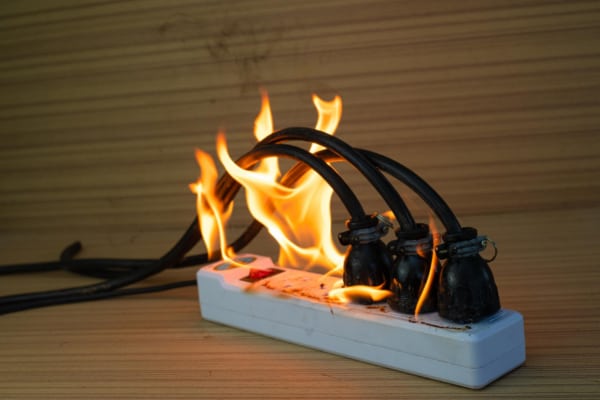
The easiest way to determine if this is the case would be to unplug two appliances—the one you suspect is the cause of the problem and another one—and plug them back in but connect the suspected problem appliance first. If the breaker only trips when you reconnect the second appliance, you are overloading your circuit, and will need to find somewhere else to connect some of your appliances.
#3 Faulty Appliance
Unfortunately, appliances sometimes do just go faulty. It could be due to physical trauma (a lamp being knocked off a table, for example), or wear and tear, or just because the appliance was poorly made. Regardless of the reason, you can identify this by trying the appliance on a different electrical circuit to see if it trips that breaker too, or disconnecting everything so that the potentially faulty appliance is the only thing connected.
If your appliance is faulty, your next course of action will depend on your own preferences. If the appliance is something like a cheap radio, you might want to just throw it away. If it’s an expensive appliance, or an appliance with some intrinsic value, you might want to get it repaired. Regardless, you should not be plugging it back in while the fault remains.
#4 Faulty Electrical Outlet
Sometimes your investigation may lead you to a specific appliance as the cause of your tripping breaker, but it is actually the outlet that is at fault. Remember, the breaker is responsible for the whole circuit, and that includes all the wiring and outlets between it and the appliances.
Obvious signs of a faulty electrical outlet include scorch marks around the socket, burning smells, and smoke. You can relatively easily test this fault by moving the appliance to a different socket on the same breaker circuit. If the breaker stops tripping, the problem wasn’t with the appliance.
#5 Water Shorting
Water conducts electricity, so getting water in the inner workings of an electrical appliance or outlet is less than ideal. If your appliance has been the victim of a spillage, there’s a good chance there is moisture inside shorting the electrical components out. In many cases this will only affect the appliance, perhaps blowing the fuse in the plug, but it can cause your breaker to trip as well.
Conclusion
Electrical appliances causing your fuse board to trip are not that uncommon, but it’s important to remember there are a lot more points of failure in your home’s electrical network than just the appliances.
And, of course, never try to ignore a problem like this. If your fuse board is repeatedly tripping, there is a problem that needs fixing.
You May Also Like...
How To Safely Identify Electrical Faults in Your Home
Find My Local Expert How To Safely Identify Electrical Faults...
Read MoreDo I Need an Electrician to Move an Electrical Outlet?
Find My Local Expert Do I Need an Electrician to...
Read More8 Signs You Need to Change Your Electric Sockets
Find My Local Expert 8 Signs You Need to Change...
Read More7 Things You Can Do Before The Emergency Electrician Arrives
Find My Local Expert 7 Things You Can Do Before...
Read MoreFuse Board Still Tripping?
My Trusted Expert Guarantee
Experts Have Been Vetted & Approved
